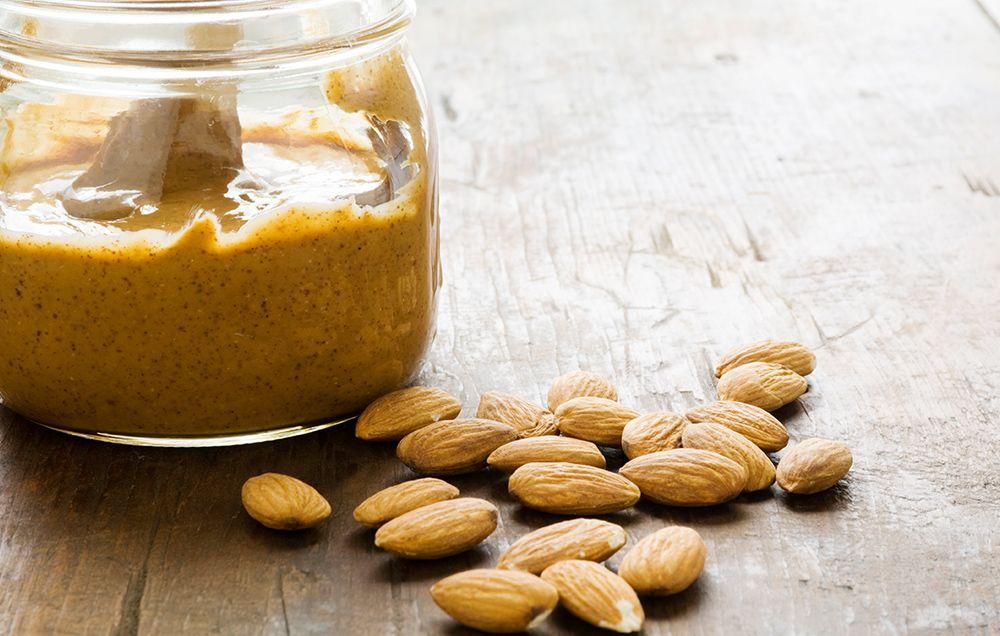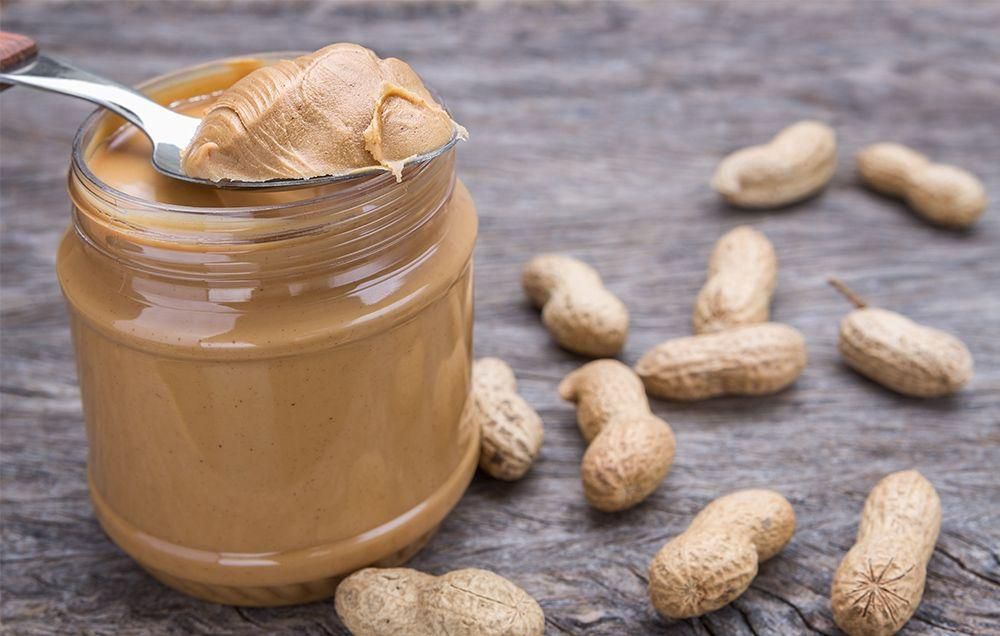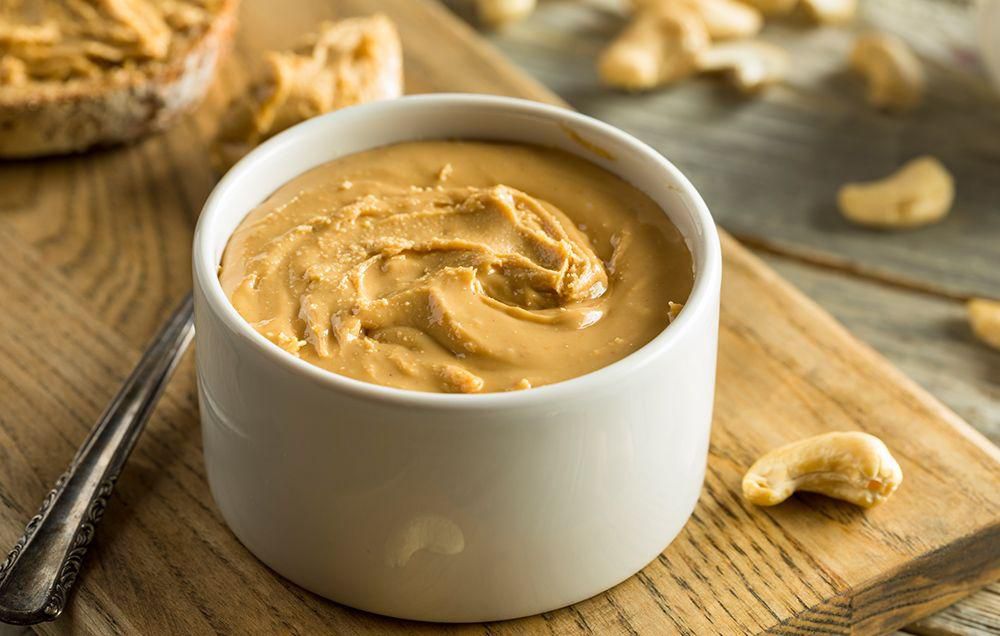We Asked A Nutritionist To Rank 9 Different Nut Butters—Here's What She Said
)
But in this brave new world of nut butters, hows a girl to know which protein-packed staple to slather on her snack? Is there really a best nut butter?
Ranking nut butters is like ranking veggies, says dietitian Keri Glassman, RD. Theyre all good!
In addition to supporting weight loss (as long as you exercise portion control), nuts can also help you ward off diabetes, cancer , and heart disease.
(We should also mention that some of these nuts are actually seeds and legumeswe're looking at you, SunButterif you want to get technical about it.)
Generally, nut butters provide a nice balance of healthy fats, protein, and fiber, as well as vitamins (like vitamin A, vitamin E, and B vitamins) and minerals (like iron, zinc, magnesium, and potassium), Glassman says.
Wondering about PB and sunflower seed butter? Butters made from seeds or legumes also offer legitimate benefits. (Just keep that added sugar as low as possible, of course.)
However, just as with veggies, certain nut (or seed or legume) butters might be better suited to your personal nutritional needs and fitness goals. That's why I asked dietitians to rank the best nut butters in order of their nutritional one-two punch. Consider your next stroll through the grocery store as smooth as Skippy.
1. Almond Butter

From a nutritional perspective, almond butter just barely edges out your old pal PB.
Almond butter is the highest in healthy fats, with about three grams more of heart-healthy monounsaturated fat per serving compared to peanut butter," says Glassman. (It's also slightly higher in nutrients like the antioxidant vitamin E.)
Find out how almonds can help you lose weight:
Almond butter is perfect slathered onto apple slices or celery and, thanks to its complete combo of protein, fiber , and healthy fats, makes a perfect post-workout snack.
However, since almond butter is significantly more expensive than peanut butter (and almonds require a lot of water to produce), feel free to mix up your nut butter game, Glassman says.
Per serving (2 tbsp): 196 calories, 17.8 g fat, 6 g carbs, 3.3 g fiber, 2 g sugar, 73 mg sodium, 7 g protein
2. Peanut Butter

Theres a reason this OG stands strong. Though not as high in healthy fats and vitamin E as almond butter, peanut butter is higher in protein, says Glassman.
Its also got ample amounts of iron and folate to help prevent anemia and for healthy pregnancy, potassium for your muscles, magnesium for your bones and to help you sleep, and vitamin B6 and zinc for your immune system, she says.
Being around a long time also gives peanut butter the advantage of being the most-studied, and research has shown that eating peanut butter regularly can help decrease your risk of heart disease and diabetes .
Another perk: good ol' PB is cheap.
Per serving (2 tbsp): 191 calories, 16.4 g fat, 7.1 g carbs, 1.6 g fiber, 3.4 g sugar, 136 mg sodium, 7.1 g protein
3. Pistachio Butter
[IMAGE]
Of all of the new nut butter options out there, pistachio butter is definitely one worth checking outespecially if youre looking to up your protein intake.
Protein is important since it helps build and repair muscle, and aids in mealtime satiety, says Keri Gans, RD, dietitian and author of The Small Change Diet .
Pistachio butter is also loaded with B vitamins that can help you turn calories into energy, adds Scott Keatley, RD, dietitian and founder of Keatley Medical Nutrition Therapy .
It also just tastes really, really good. It may be the tastiest of the nut butters, if you were to ask me, Keatley says.
Per serving (2 tbsp): 180 calories, 13 g fat, 9 g carbs, 3 g fiber, 2 g sugar, 0 mg sodium, 6 g protein
4. Walnut Butter
[IMAGE]
In addition to a solid serving of protein, walnut butter also offers alpha-linolenic acid (ALA), the omega-3 fatty acid found in plants. According to Keatley, ALA can help lower your risk of heart disease, lower your blood pressure and cholesterol, and reverse hardening of your blood vessels, so theres that.
Walnut butter also offers nut butters' usual heart-boosting properties. It also provides heart-healthy monounsaturated fats and vitamin E, which both have anti-inflammatory properties, Gans says.
Per serving (2 tbsp): 170 cal, 14 g fat, 11 g carbs, 1 g fiber, 7 g sugar, 0 mg sodium, 1 g fiber, 3 g protein
5. Sunflower Seed Butter (a.k.a. SunButter)

Up to 1.5 percent of Americans are allergic to peanuts and tree nuts (a number that has tripled since the 1990s), so alternative spreads for bananas and toast are a must these days.
Sunflower seed butter is an excellent choice for anyone with a nut allergy or sensitivity, Glassman says.
Sunflower seed butter is also high in vitamins E and A, which are awesome for glowing skin and bright eyes, she adds. Plus, it boasts more magnesium per serving than any other butter on the list, making it a powerful inflammation regulator and beauty-sleep supporter.
However, SunButter is higher in calories and slightly lower in protein than the other spreads on this list, so don't go overboard when eating it.
Per serving (2 tbsp): 197 cal, 17.7 g fat, 7.5 g carbs, 8 g fiber, 3.4 g sugar, 106 mg sodium, 5.5 g protein
CASHEW BUTTER

Cashew butter is sweeter than many other nut butters without added sugar because its a naturally sweet-tasting nut, says Glassman, making this a satiating choice if youre working on lowering your added sugar intake without sacrificing your sweet tooth. But, it also contains the least protein. So, while its great option to add to your arsenal, its not the best choice if you are trying to use nut butter as a way to up your daily protein intake. Think of cashew butter as a special and sweet treat to add to your nut butter lineup. But the higher price and lower protein count make it one you want to reach for every once in awhile as a healthy splurge, not as your main squeeze for smoothies, cooking, or protein-packed snacks .
Per 2 tablespoon serving: 195 cal, 17 g fat, 9.7 g carbs, 3 g sugar, 94 mg sodium, 1 g fiber, 3.9 g protein

)
)
)
)
)
)